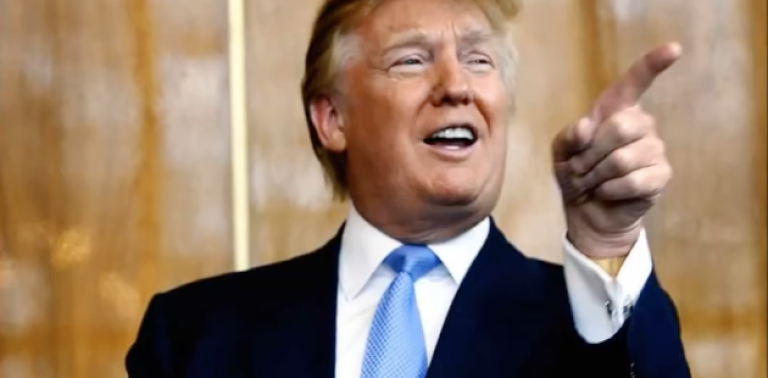Without Russians to blame, liberal media have gone from scapegoating foreign agents to now condemning Facebook’s advertising itself.
"That campaigns are now being fought largely online is hardly a revelation, yet only one political party seems to have gotten the message,” The New York Times lamented. In its Oct. 20 article “Trump Campaign Floods Web With Ads, Raking In Cash as Democrats Struggle,” The Times observed,“While the Trump campaign has put its digital operation firmly at the center of the president’s re-election effort, Democrats are struggling to internalize the lessons of the 2016 race and adapt to a political landscape shaped by social media."
Progressive Tovo Labs’ chief executive David Goldstein, was cited by The Times as saying the majority of the Democratic Party is “not even fighting last year’s war — the war that they’re fighting is 2012.”
Democrats dominated Republicans when it came to tech-savvy organizing online in the past, The Times noted, but “[s]tarting with the 2016 primaries, the Trump campaign reversed the trend.” The 2016 election was described as a massive watershed moment not only for the party but for conservative politics as a whole. The Times observed that “[w]hile the more traditionally minded Republican operatives signed on to work for the party’s more traditional candidates, such as Jeb Bush,” the Trump campaign instead made use of what Zach Moffat described as “the outliers, and a lot of them truly believed in digital.” Moffatt, chief executive of Targeted Victory, a Republican digital strategy firm described that process as a strategic “changing of the guard.”

The strength of President Trump’s reelection campaign, reportedly, is that it excels “by churning out targeted ads, aggressively testing the content and collecting data to further refine its messages.” The Times observed further that “it is selling hats, shirts and other gear, a strategy that yields yet more data, along with cash and, of course, walking campaign billboards.”
The Trump campaign has a history of tailoring its ads to specific voter groups, noted The Times, and it has done so “with a typical Trump message targeted at 2.5 million people, compared with eight million for the Clinton campaign. And the Trump team simply made more unique ads — 5.9 million versus 66,000.”
In a truly Trumpian comparison, Laura Edelson said that the president’s reelection campaign “is like a supercar racing a little Volkswagen Bug.” The Times summarized the various digital consultants’ consensus as follows: the Democratic establishment is “too focused on winning over imagined moderates,” while the Trump campaign is “firing up its base.”
Republicans are “not messaging around unity and civility, because those things don’t mobilize people,” said Elizabeth Spiers, who runs The Insurrection, a progressive digital strategy and polling firm. She added that while everyone may want to live in a less divided country, “nobody takes time off work, gets in their car and drives to the polls to vote specifically for that.”
The article followed with an entire section titled “Facebook Favors the Angry,” which claimed that Facebook “[f]ar more than any other platform” is the “focus for digital campaign spending, and it is in many ways even friendlier turf for Mr. Trump’s campaign than in 2016.”
[ads:im:1]
The reason? The Times claims that the Trump brand’s appeal to divisive issues puts dollar signs in the eye of Big Tech execs.
Facebook “favors the kind of emotionally charged content that Mr. Trump’s campaign has proved adept at creating,” suggested The Times. “The divisive themes of Mr. Trump’s campaign tend to generate more engagement than Democrats’ calmer, more policy-focused appeals. Often, the more incendiary the campaign, the further its dollars go.” In addition, “[p]rovocative ads also get shared more often, creating an organic boost that vaults them even further ahead of less inflammatory messages.”
While The Times gave Facebook credit for taking measures to prevent foreign interference, it accused the platform of allowing a “critical loophole”:
“Facebook’s fact-checking rules do not apply to political ads, letting candidates spread false or misleading claims. That has allowed Mr. Trump’s campaign to show ads that traditional TV networks have declined to air.”
However, for all of the lamentation that Democrats have not done enough in the past, the 2020 presidential primary hopefuls seem to be taking after Trump as The New York Times wrote in its article “Facebook Political Ads: What the 2020 Candidates’ Campaign Spending Reveal.”
In the piece, The Times discussed 12 leading Democratic candidates who are “trying to reach specific voters with Facebook ads.”
The sheer amount of money spent is staggering. “Collectively, the 19 current Democratic candidates for president have poured nearly $32 million into Facebook ads this year,” wrote The Times, before adding that this is “more money than they have spent so far on television ads, a striking measure of the social network's ever-rising influence in politics.”
Betsy Hoover, the Obama administration’s re-election campaign director of digital organizing, commented on how the Democratic Party is at a strategic disadvantage: “We are running a primary strategy and Trump is running a general election strategy,” The Times reported her as having said, “And that’s terrifying.”
[ads:im:2]









